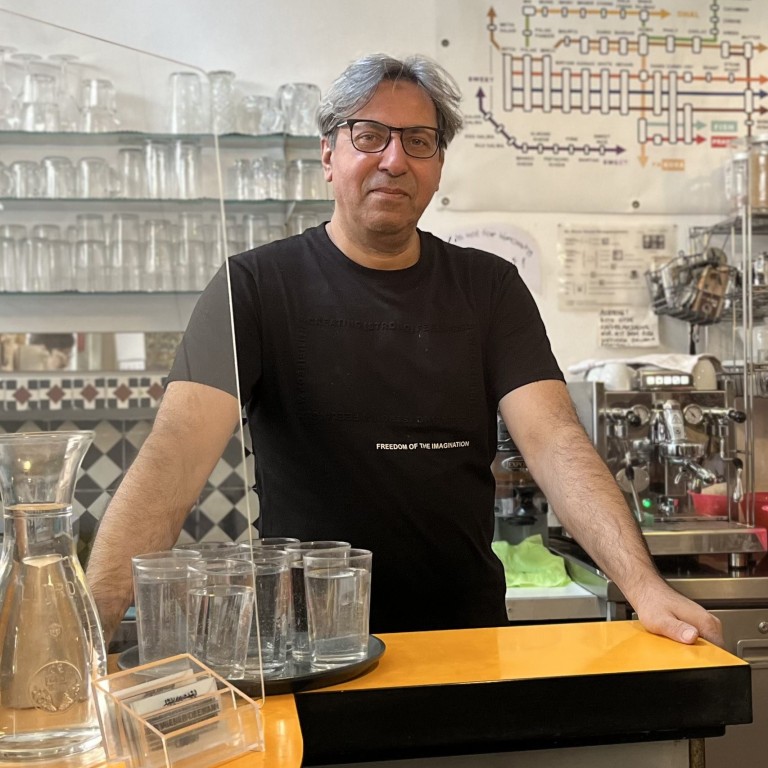
‘All you can eat, pay as you wish’: buffet restaurant that trusts its customers to decide what a meal is worth still going strong after 17 years
- Der Wiener Deewan, a Pakistani restaurant in the Austrian capital Vienna, was established in 2005 by immigrant Afzaal Deewan, who had arrived the year before
- Whatever isn’t eaten in the restaurant is given away, collected every night by volunteers from a refugee organisation
Der Wiener Deewan, a Pakistani restaurant in the ninth district of the Austrian capital Vienna, has proved a successful social experiment.
It presents no prices for the food it serves and its motto, painted in bold green lettering above the door, is “All you can eat, pay as you wish”.
It’s up to the customers to decide what the food quality and meal experience are worth.
The restaurant was established in 2005 by Afzaal Deewan, 58, who had arrived in Austria as a single, 40-year-old immigrant from Pakistan the year before.
“I came to Vienna and was looking for work,” Deewan says. “I used to visit other Asian restaurants but they were very expensive. When I cooked at home I realised that the costs are much lower.”
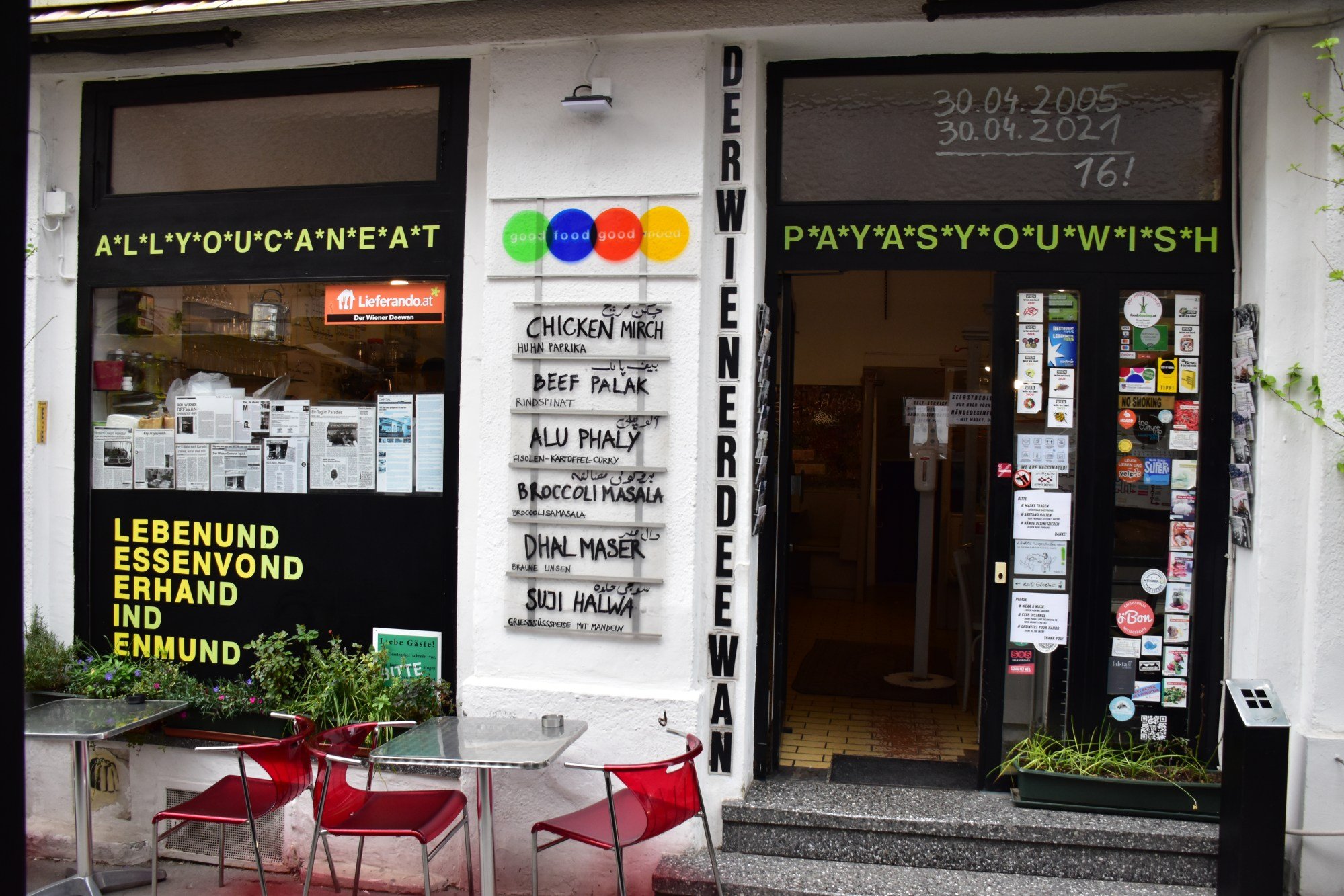
One day, the members of an NGO located in the building where Deewan lived asked him whether he knew how to prepare Pakistani food. When Deewan said yes, he was asked to cook for a party they had organised.
“Everyone liked the food and I thought of doing something [more permanent] along those lines.”
Establishing a restaurant in a city such as Vienna without any financial backing was not easy, but an idea was forming.
“We decided to be a bit unconventional,” says Deewan, who by this time had teamed up with a student called Natalie, who is now his business partner and wife.
“It started as an experiment. The idea was to play the risk and trust people.
“We were lucky that we got it back. The people of Austria were honest and have been keeping us afloat for 17 years.”
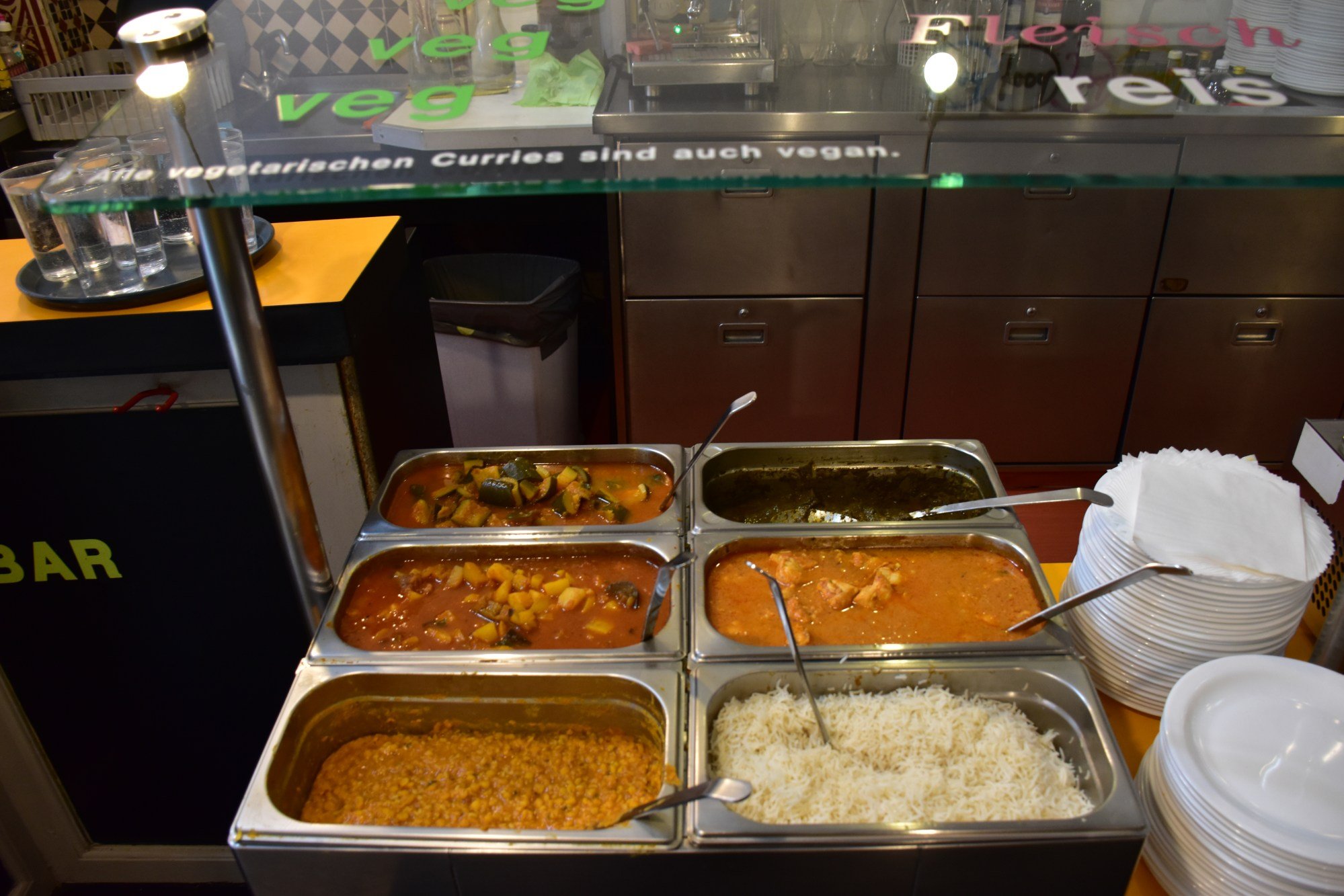
Customers include students, refugees, politicians and ministers.
“[Before the pandemic] around 500-600 customers would eat food here during the day,” Deewan says. “However, at present, the numbers have plummeted to 250 people per day.”
Der Wiener Deewan isn’t unique; there are a few other restaurants around the world where customers can decide how much they wish to spend, including Pay As You Please, in Ireland; Lentil As Anything’s restaurants in Australia; Seva Cafe, in India; and Annalakshmi, a volunteer-run Indian restaurant with branches in Malaysia, India, Australia and Singapore.
There have been times when after eating food, people come up and say they have no money. We let them go. After all, what can you do during these times?
Deewan has established two other outlets – in Vienna’s second (Leopoldstadt) and 12th (Meidling) districts – both of which also run on the “pay what you want” concept – but he says expansion was never a primary aim.
“Our main goal was not just to earn money but to introduce a new taste with a revolutionary pricing idea because when I came here, no one knew what Pakistani food tasted like. And people like me were not able to eat at restaurants. So we decided to bridge that gap.”
Bangladeshi immigrant Ranjeet Saha has been working at Deewan as a cashier and cleaner for five years.
“We do not tell [customers] how much they should pay,” he says, “but what we suggest is that they should pay a fair price.”
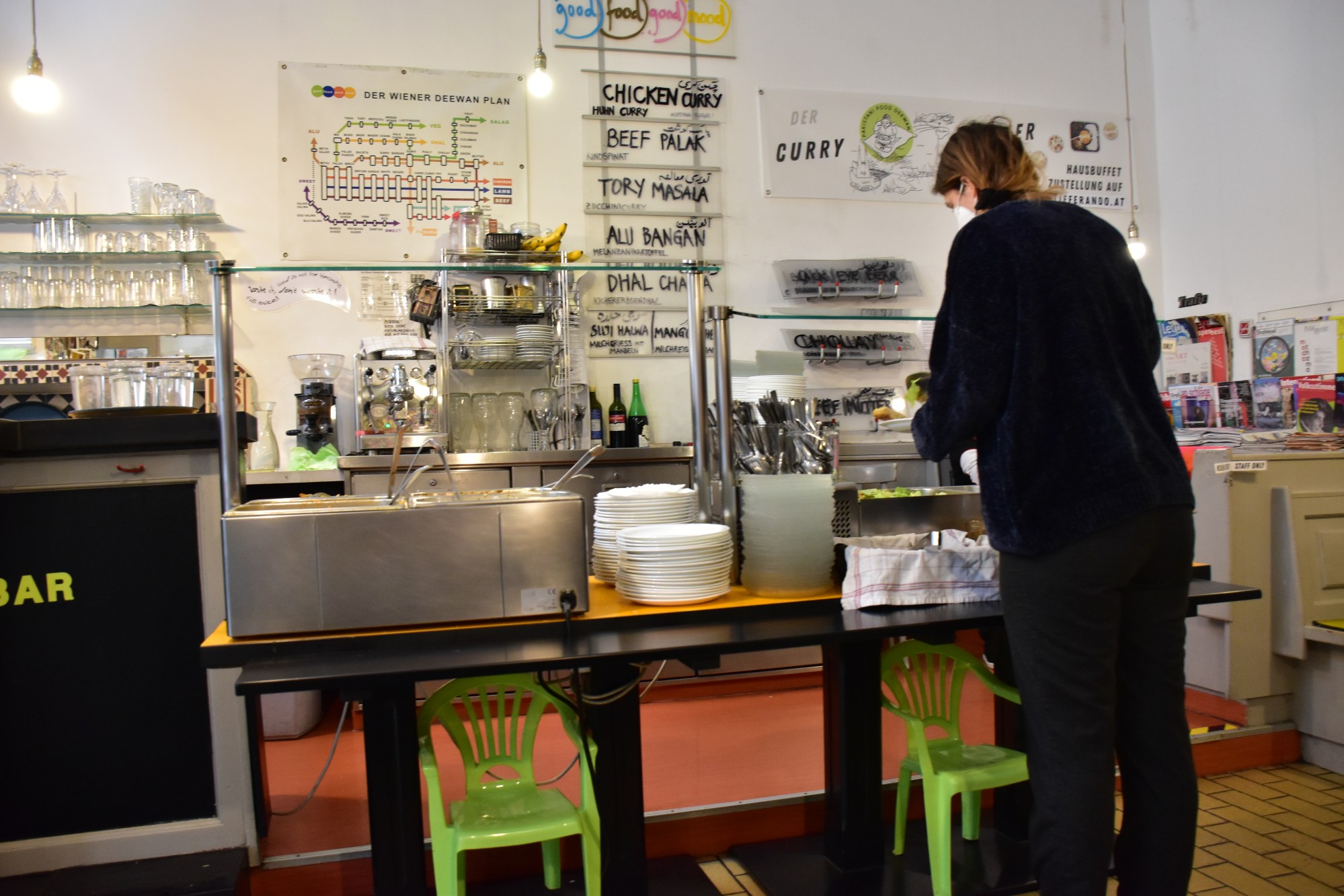
The original restaurant in the ninth district (Alsergrund) is able to serve 75 people at a time. The food – five or six freshly cooked curries in a buffet with rice, naan, salad, dessert and chutneys – is put on display next to the cash register and customers come and take as much as they want. Alcohol, juice and other drinks are sold at fixed prices.
Whatever isn’t eaten in the restaurant is given away.
“At around 10pm, when the restaurant is about to close, volunteers from a refugee organisation come to the kitchen with their containers and all the remaining food is given to them,” Saha says. “The next day, food is cooked from scratch. There are no leftovers.”
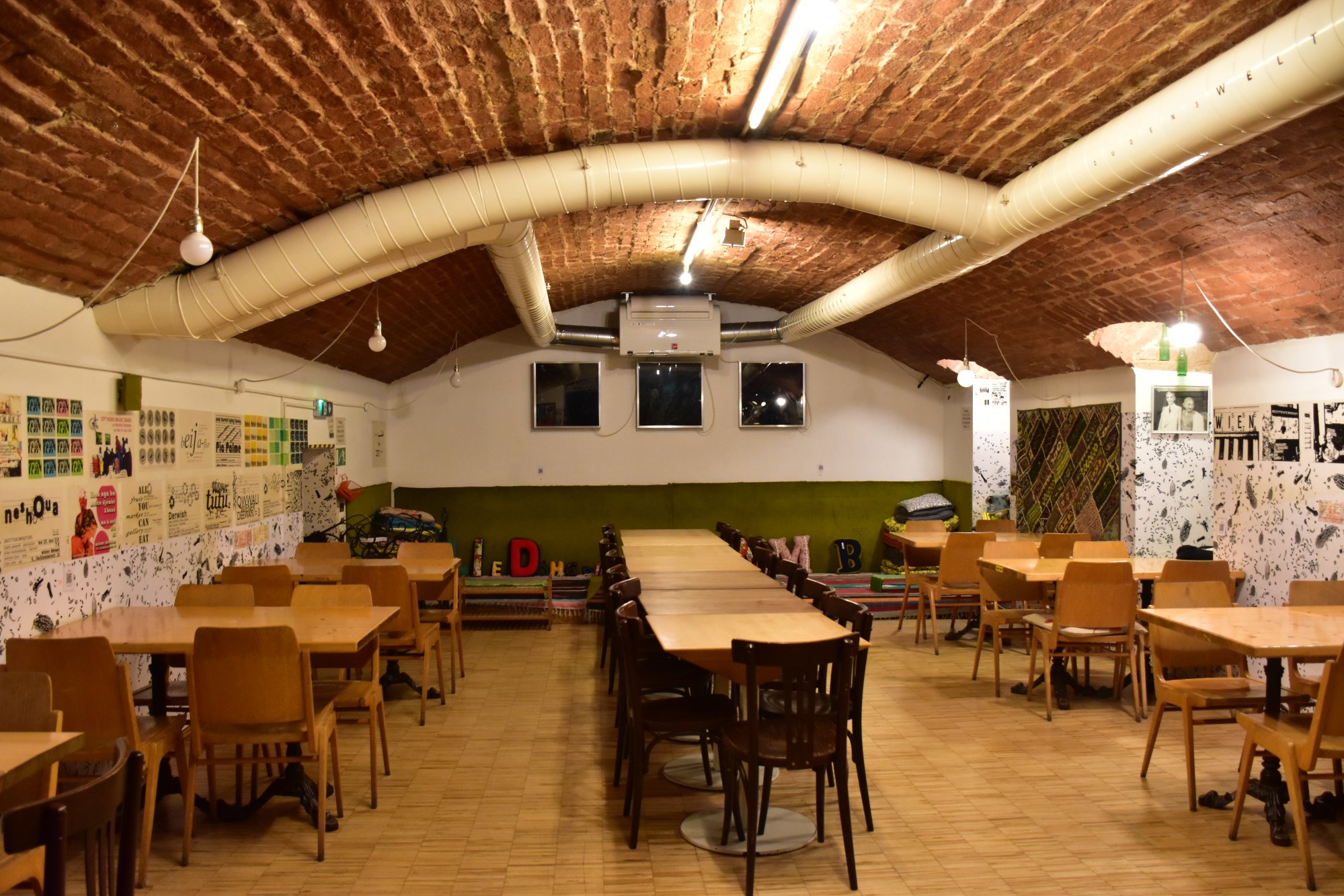
The informal, hospitable nature of the restaurant is complemented by its decor. Asian shawls, pictures of local leaders in Pakistan who are distant relatives of Deewan or the other Pakistani cook working in the restaurant, and European art decorate the walls. Colourful cushions lay on the seats.
Deewan says he divides his clientele into two main types: the altruistic and the needy.
“Customers with altruistic tendencies tend to pay higher prices,” he says. “Customers who have a high degree of altruism are simply empathetic to the cause.”
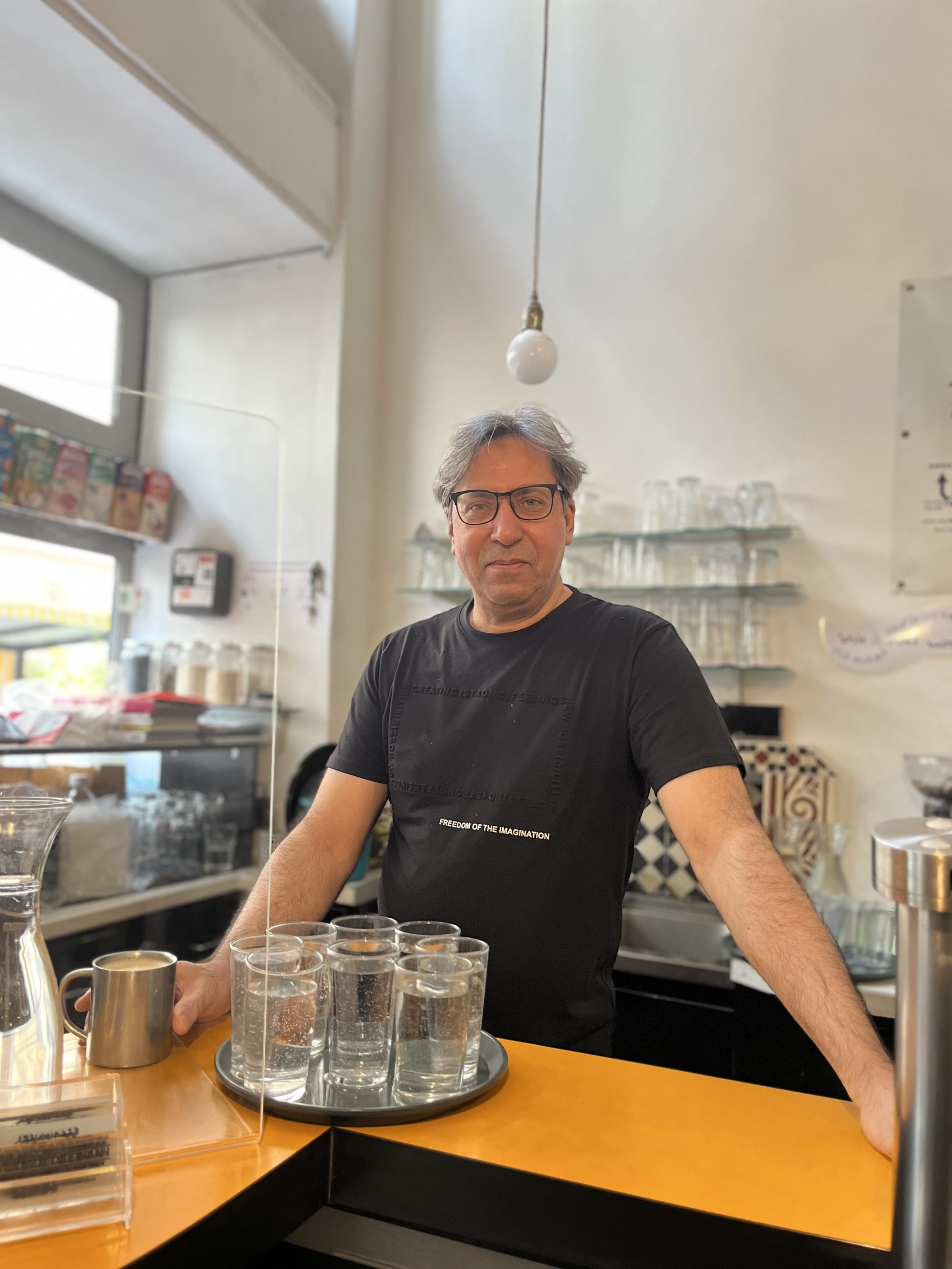
Among them is Andrea, who has come to have lunch.
“I paid €12 [US$12.10] while I ate only little,” says the university student. “It is because there was a time when I didn’t have money and I would come here to have food. They accepted very little from me. So, this was my way of paying back.
“Also, I want to contribute to this cause, to make food affordable to all, so that no one would feel left out.”
On the other hand, Deewan says, “there have been times when after eating food, people come up and say they have no money. We let them go.
“After all, what can you do during these times?”
